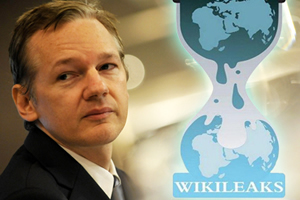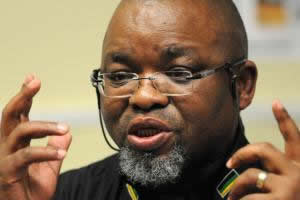Proliferation of dispensers of false generosity worrying
concept of the state-centric model of international relations was challenged as Northern funded non-state actors were given a more over-riding role in Africa’s state affairs. According to this new Western concept, governance of the political system would no longer be the sole preserve of the Hobbesian sovereign or the Machiavellian prince, but would involve other stakeholders other than the state itself.
The African government was to be more transparent and accountable to its citizens, as well as, broadening the participation of non-state actors in political issues.
This new Western dispensation is embedded in John Locke’s political philosophy which advocate a government with limited power over its citizens.
He pointed out that, “government is best that governs little,” implying that a state’s power had to be clipped as to afford all citizens their inalienable rights.
After Africa’s independence, the defeated colonialists left by the front door and later returned through the back door “as political and economic vampires” in a more refined form.
Imperialism was not destroyed as the Northern countries came up with a more sophisticated and advanced “Trojan horse”.
This new vehicle for the restoration of imperialism on the continent was to manifest itself through NGOs and donor funded civil society groups which have always pretended to be working for civil liberties, human rights and promotion of democracy.
The push for the democratisation of the continent through these groups, is yet another renewed camouflaged “chameleon tactic” of regime change used by the Western powers to create political structures that are conducive for the exploitation and external control of weak African states.
As such, the establishment of some donor funded NGOs and civil society groups is more of an attempt by the Northern countries to restore and consolidate what was once achieved through the strong political administration of colonialism.
Africa is the only continent in the international system where the state’s Westphalian attributes or characteristics have been greatly undermined and eroded by non-state actors which include NGOs and donor funded civil society groups.
Tafataona Mahoso correctly observes that the Anglo-Saxon powers, led by the US, control a continental network and superstructure of civil society throughout Africa.
He notes that this continental NGO network ranges from individual activists and NGOs at the village level to national headquarters of the same NGOs operating on a nation-wide basis; it ranges from donor-funded, quasi-judicial human rights commissions to regional bodies such as the Sadc Tribunal, all the way to the African Commission on Human and People’s Rights(ACPHR.) In typical Thucididesian fashion, “the strong do whatever they can and the weak suffer what they must.”
The West treats sovereign African states as abusers of individual rights while it supports its own self-funded pseudo-democratic opposition parties and civil society groups as defenders of human rights as observed in Kenya, Ivory Coast, Zimbabwe and Malawi.
According to this neo-liberal paradigm, the African state is to be reduced to a mere spectator as these Western funded civil society groups assume the state’s role in political issues.
State power is to be shared between the state’s political elites and civil society. The diversity of civil society in political issues will ensure that the state is not held captive by a few groups (political elites.)
The civil society groups are seen as a reservoir of political, economic, cultural and moral resources to check the power of the state.
However, most of Africa’s civil society groups do not comprise voluntary civic and social organisations and institutions but are more of donor driven and politically motivated pressure groups.
From mere observation it cannot be disputed that the real winners in this democratisation process are actually those who are giving funds to these civic groups and NGOs.
A large number of African NGOs (as well as civil society groups) were born in the womb of the neoliberal offensive which began to open up some space for freedom of association.
The anti-state stance of the so-called donor-community was the real push behind the upsurge in NGO activity as observed by Professor Shivji.
Most of these Western funded pressure groups are to a larger extent concerned with the interests of opposition political parties than the individuals and groups they are supposed to serve.
Funding of civil society projects and programmes at grassroots level is not well defined as that provided to civil society groups which deal with political issues.
In the 1980s, Western aid covered rural and community development projects and from 2000 onwards, a major shift in the North`s aid policy is observed as more funds were now diverted towards democracy, rule of
law and other political issues. In other words, this new paradigm shift witnessed aid being used as a weapon to change governments through neo-liberal sponsored civil society groups and NGOs.
The African state after the demise of the USSR had to embrace Western democratisation principles and norms which were meant to weaken the role of the state in political issues. Democracy is necessary in any political system.
However, it should not be a caricature of Western liberal centric ideas but it should be a democracy centred on pan-African ideals as propounded by Africa’s founding fathers, the likes of Nyerere, Nkrumah, Kaunda,
Machel, Biko, Cabral, Selassie, and many others. Pan-African ideals should be central to any African definition of democracy.
Opposition political parties should be indigenous in character upholding the wishes of the masses. Flag independence, where African states are politically independent and economically dependent should be done away with.
Most African economies are still being controlled by an elite Western bourgeoisie class which owns all the means of production right from the land up to the mines, industry and capital. It also heavily funds most NGOs and civil society groups.
Western neo-liberal democracy tends to mean a political system that practices good governance and upholds human rights and the rule of law but does not challenge the rule of capitalist corporations.
In the neoliberal discourse, the African state is villainised and African bureaucracies are demonised as corrupt, incapable and unable to learn.
They need globalised foreign advisors and consultants, who are now termed development practitioners, to mentor, monitor and oversee them. Among the mentors and monitors are, of course, NGOs.
This quotation from Shivji entails that the NGO has become the “sea” (water) which the African state (the fish), needs in order to survive.
Without NGO “water” the African state which is the ‘fish’ will perish. Such myopic thinking has been accepted by the majority of African people.
Most NGOs and civil society groups in Africa are led by, and largely composed of, the educated elite, located in urban areas and well-versed in the language and idiom of neo-liberalism.
According to Professor Shivji, NGO elites (as well as civil society elites) include well-intentioned individuals driven by altruistic motives to better the conditions of their fellow compatriots. In other words, they are morally motivated.
There is also a group that constitutes the mainstream elite who shifted to the NGO world once they found that this is where the donor funding was directed.
The motivation of these elites is quite simply career based. It is driven by material gains rather than any altruistic motives. It is personally motivated.
This last group is the greatest threat to Africa’s independence. It is at best, greedy and selfish and at worst, treacherous and dangerous. These “Africans” have completely nothing to offer the continent. They are agents of neo-colonialism.
Paulo Freire calls these whitewashed Africans the dispensers of false generosity. They have no solution whatsoever to Africa’s myriad problems. All they are interested in – is betraying the continent for a few pieces of silver.
NGOs are taken as the ‘third sector’, the other two being the state (power, politics), and the private sector (capital, economics). This ideological presentation of NGOs is also the dominant self-perception of the NGO world and yet it is based on utterly false historical and intellectual premises with serious political implications.
Non-state actors in Africa, and Zimbabwe in particular, should have no final say on issues concerning security sector reforms, indigenisation and black empowerment. This should be the domain of the state.
The state should always mold the activities of NGOs and civil society groups more than its behaviour is moulded by them. Holsti points out that the key decisions relating to war, peace, security, order, arms control, and the like, remain the preserve of the state.
Non-state actors may influence the final choices, but by themselves they do not make authoritative decisions or have the final word on these issues.
In this anarchical international system, the African state should never be a weak, eclipsed and down-sized entity, controlled by heavily-funded and internationally net-worked NGOs and civil society groups.
- Bowden B C Mbanje and Darlington N Mahuku are lecturers in International Relations and Peace and Governance at Bindura University of Science Education.











Comments